Regarding food, the concept of quality is multidimensional, as it can take on different meanings:
- quality as a standard – the ability of products to meet a series of nutritional requirements;
- quality as variety – different types of products differing from each other in terms of their contents;
- quality in sensory terms – with certain taste and aroma characteristics;
- quality in environmental terms – the compatibility of the food with the principles of sustainability.
The use of alfalfa in food rations is a valuable choice for farm animals, for the livestock supply chain, and consequently for the food supply chain, because it leads to excellent quality food, benefits the health of consumers, and also has a positive environmental impact.

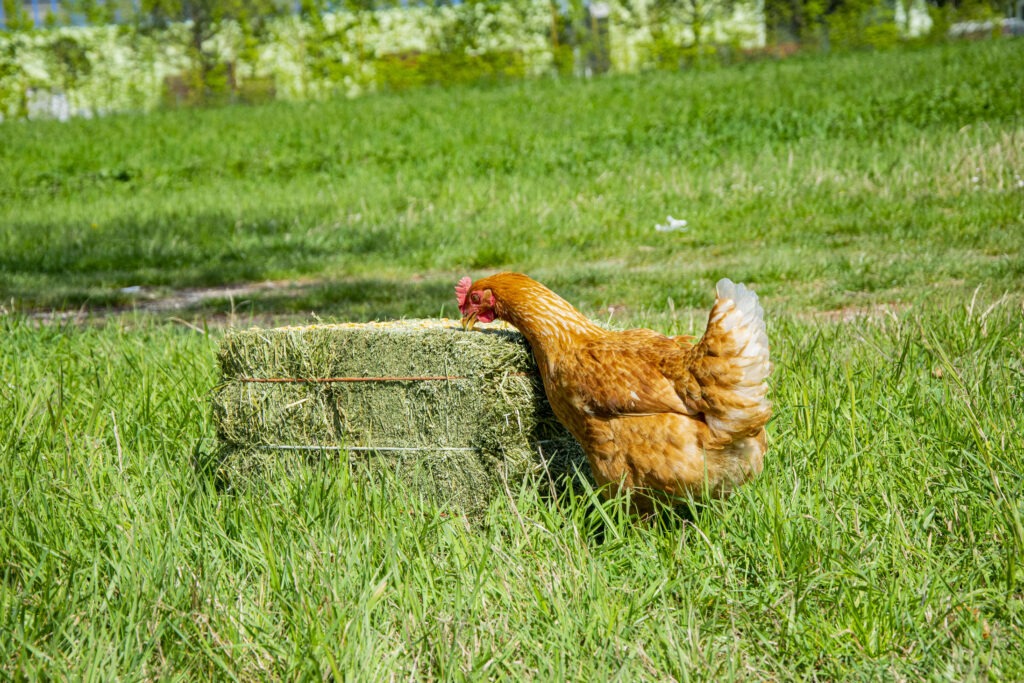
What is the impact of alfalfa on our food?
Health
Milk, meat and eggs derived from alfalfa-fed animals, less exposed to chemicals, are richer in natural nutrients.
Nutritional value
Alfalfa improves the functional nutrient profile of foods, with positive effects on human health.
Sustainability
Foraging with alfalfa, grown locally and processed according to specific hygiene practices, has positive effects on rural communities and the ecosystem.
What are the effects of feeding alfalfa to animals on the quality of their milk, meat and eggs?
Extensive international scientific literature has shown that feeding farm animals with alfalfa has a positive impact on the quality of the food products derived from them, such as milk, meat and eggs. This is due to the nutritional profile of alfalfa, which is naturally rich in functional nutrients, such as proteins, fats, fibre, carbohydrates and vitamins. These nutrients are metabolised by the animals, and therefore directly influence the composition and taste and aroma qualities of the resulting food products.

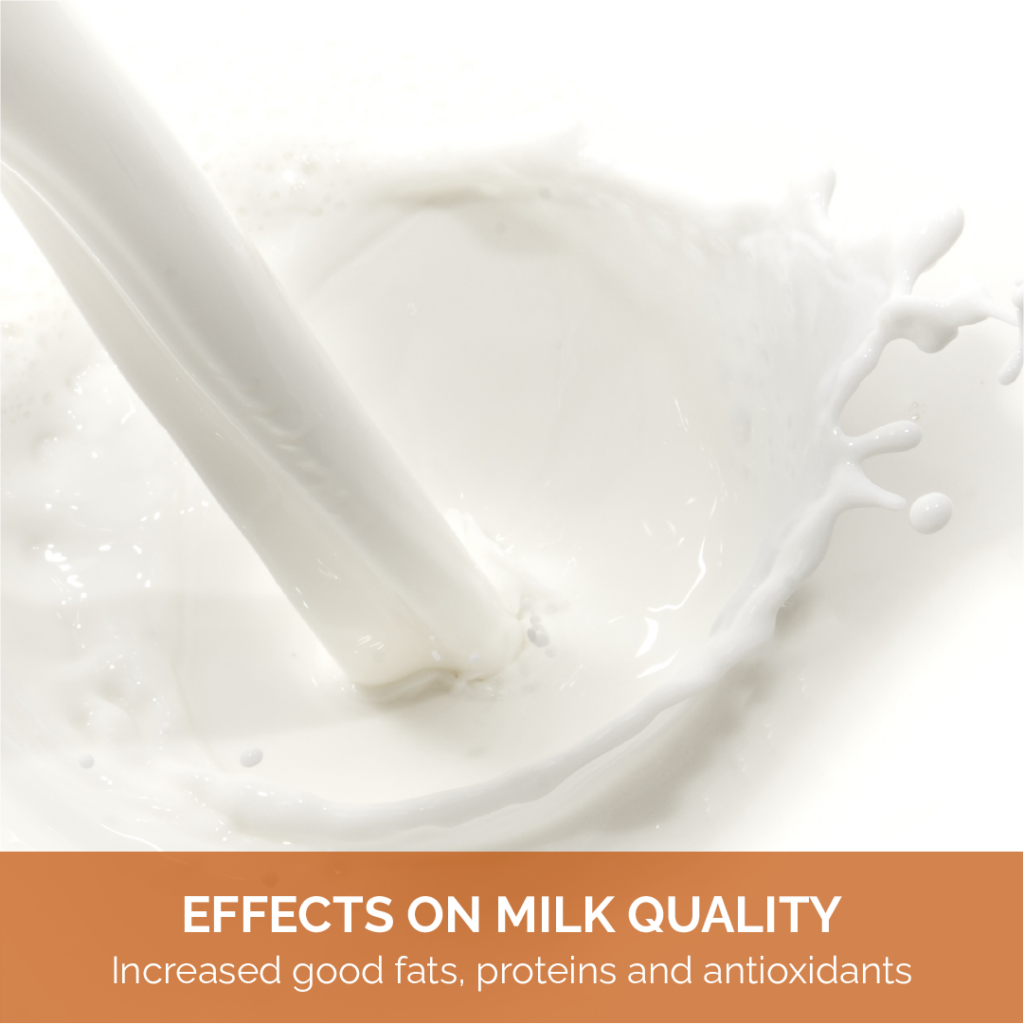
- Increase in milk proteins: Being rich in proteins and essential amino acids, alfalfa promotes a higher milk protein content, which is an important element for quality and for dairy processing (e.g. cheesemaking).
- Higher good fat content: A diet with alfalfa increases the share of unsaturated fatty acids, such as conjugated linoleic acid (CLA), known for its beneficial effects on human health, such as improving lipid metabolism.
- Better mineral profile: Thanks to the high calcium, magnesium and phosphorus content of alfalfa, milk tends to be richer in these essential minerals, and therefore have a higher nutritional value.
- More natural flavours and aromas: Milk from alfalfa-fed animals often has a milder, more natural flavour that is associated with high-quality forages.
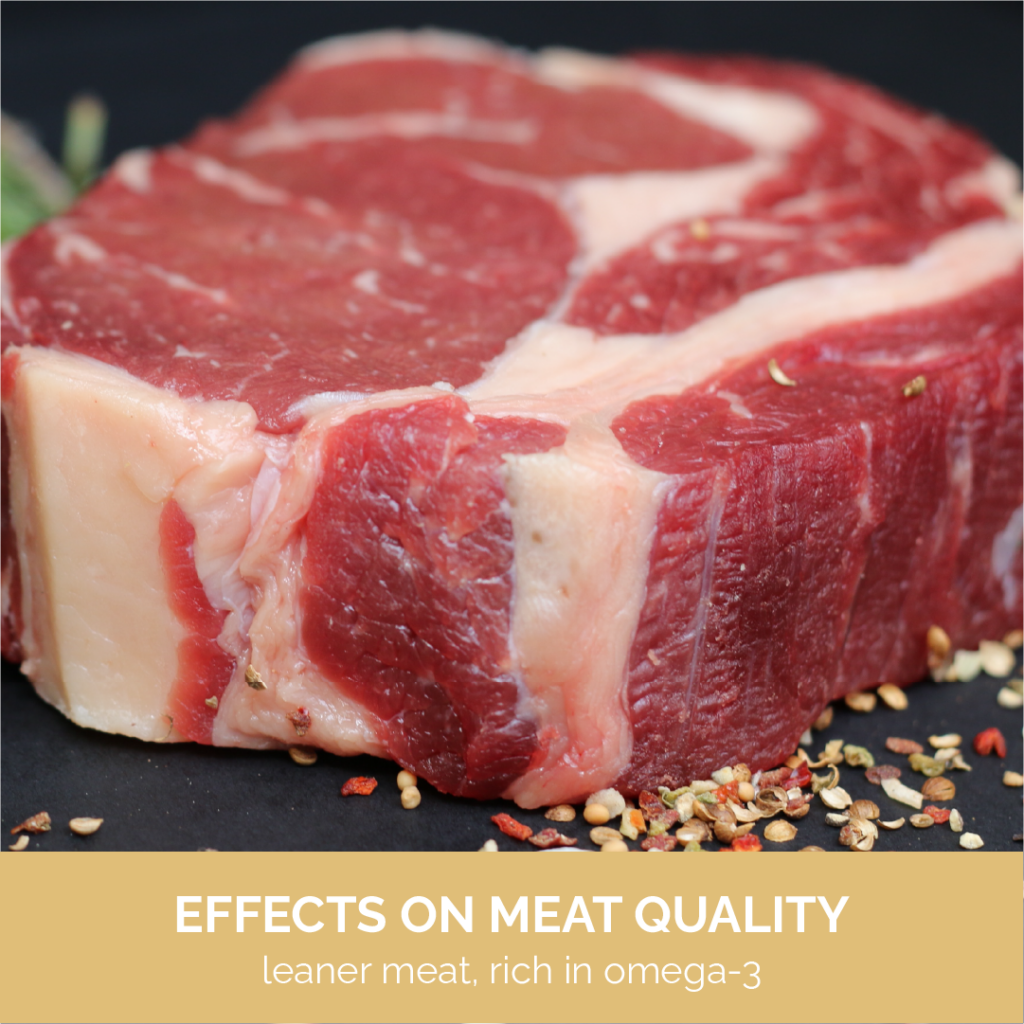
- Better protein content: The amino acids provided by alfalfa contribute to the formation of quality muscle tissue, ensuring meat with a high protein value.
- Reduced visceral fat: Alfalfa promotes lean growth in animals, producing meat with less intramuscular fat, which is therefore healthier.
- Higher concentration of omega-3: In the meat of animals fed with alfalfa, there is a better proportion of omega-3 and omega-6, leading to a more balanced human diet.
- Better colour and texture: The high presence of antioxidants and carotenoids in alfalfa improves the natural colour of meat, making it more vibrant and appetizing, as well as more tender.
- Reduced chemical residues: Compared to other more concentrated food sources (e.g. intensive feeds), alfalfa reduces the risk of unwanted chemical residues in meat, such as antibiotics and pesticides.
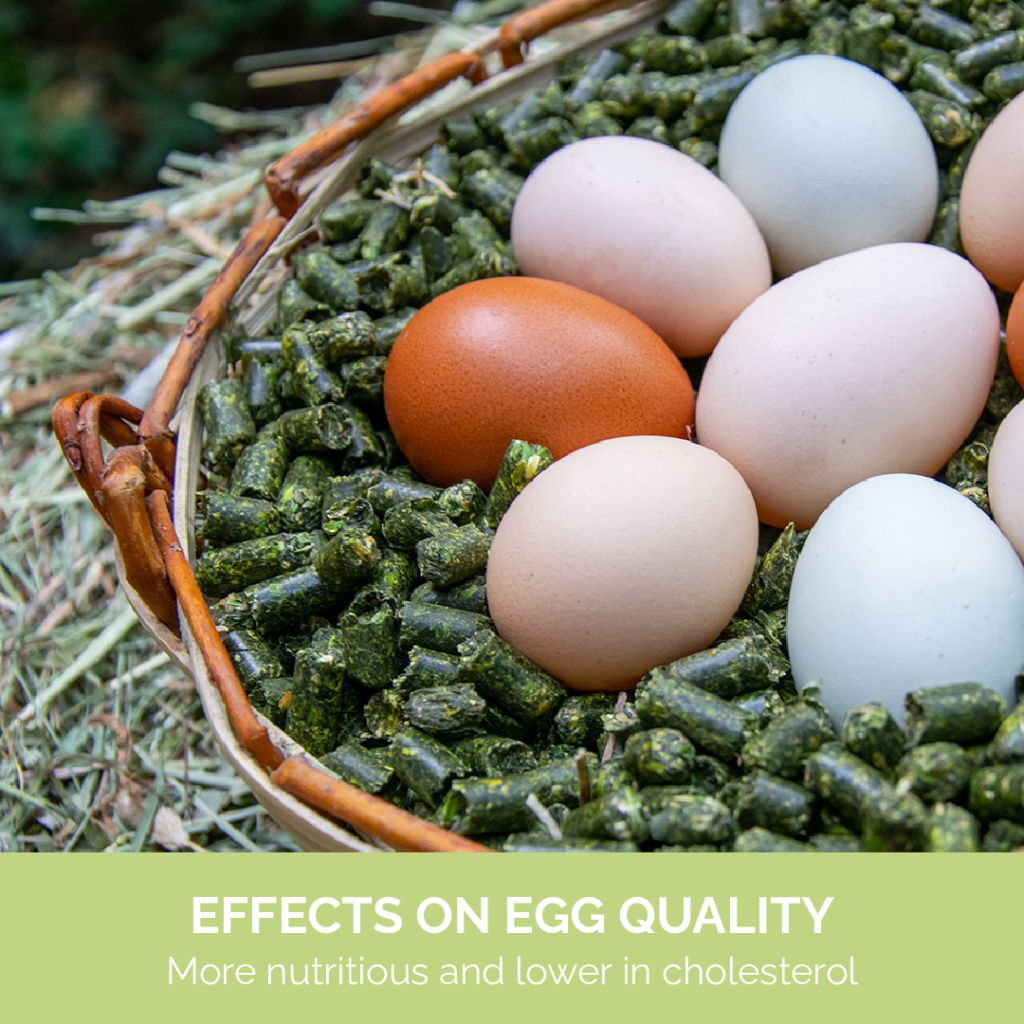
- Increased omega-3 fatty acids: Alfalfa-fed chickens produce eggs with a higher content of omega-3 fatty acids, which are particularly beneficial for cardiovascular health.
- Higher vitamin content: Alfalfa provides fat-soluble vitamins (A, D, E, K), which are transferred into eggs, increasing the nutritional value of the product.
- Richer and more colourful yolks: The natural carotenoids in alfalfa intensify the pigmentation of the yolk, giving it a golden yellow colour particularly appreciated by consumers.
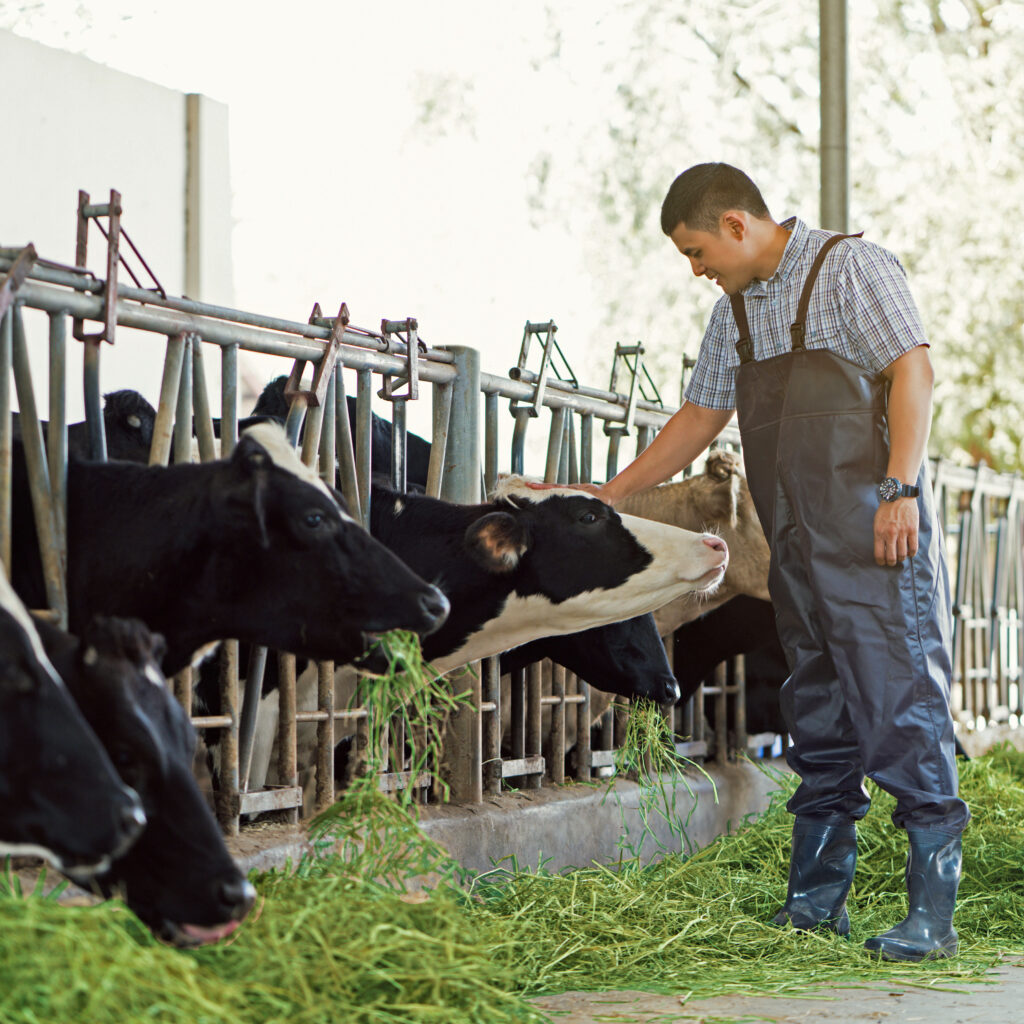
From field to plate, the agri-food supply chain is committed to meeting consumer expectations in terms of sustainability. Through its range of professional feeds, Gruppo Carli does its part alongside farmers who are more determined than ever to reduce the environmental footprint of their farms by using more sustainable raw material supplies and more precise rationing plans.
Sources
https://doi.org/10.3382/ps.2013-03831
https://www.tandfonline.com/doi/abs/10.1080/00071668.2012.731493
https://www.sciencedirect.com/science/article/abs/pii/S0377840103003444
https://www.sciencedirect.com/science/article/pii/S0022030224008294
https://academic.oup.com/af/article/13/2/28/7123478?login=false
https://www.bionutrientinstitute.org/session
https://apjcn.nhri.org.tw/server/APJCN/15/1/21.pdf

